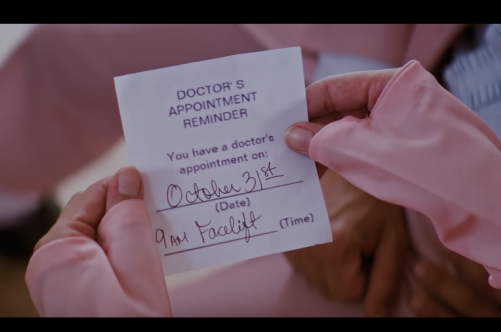How Neuroplasticity Negates Negativity
As the old saying goes, it’s a woman’s prerogative to change her mind. But what if changing it meant changing the way your brain works, and by extension, your life?
There’s a science behind this idea, and it’s called Neuroplasticity. Though scientists a century ago believed the brain stopped developing in early childhood, new research on animals and humans reveals that our brains continue to reorganize themselves. The neurons in our brains compensate for injury and adjust their activity in response to new situations or changes in their environment.
In other words, we have control over our destiny when it comes to how our brain works.

Mind over Matter
While there are pharmaceuticals and hormones that can help the brain’s ability to promote neuronal connections, they can be costly and produce unintended side effects. However, there are a variety of things we can do on our own to make our brains work more fluidly, making us more alert, more positive and even more physically fit.
As brain activity promotes brain reorganization, treat yourself to regular “brain workouts,” whether it is through puzzles, games, interactive reading clubs or—yes—workout classes or groups. Research shows that immersing oneself in challenging intellectual environments, interacting in social situations, or getting involved in physical activities like yoga or Zumba helps the brain reorganize its neuron connections more quickly.
You also need to recognize that the saying, “You are what you eat,” also includes the brain in the overall picture. Wise lifestyle choices include reducing overall calorie and carbohydrate consumption (especially sugar and grain foods), and choosing your fats wisely, as healthy fats like omega-3 help eliminate insulin resistance that can impact brain function.
Mindful Nutrition
Studies conducted at Stanford University show that there are many things one can do to switch up and increase their brain power through the right nutrients.
Vitamin D plays a fundamental role in brain health, inflammation, and immune function, and influences the expression of 2000-3000 genes. In older adults, research has shown that low vitamin D levels are associated with poorer brain function. Appropriate sun exposure—about 15 minutes per day—is all it takes to keep your levels where they need to be.
As your gut is your “second brain,” figuratively and literally, it’s important to trust it and take care of it. Just as you have neurons in your brain, you also have neurons in your gut and digestive tract, including those that produce neurotransmitters like serotonin, which is linked to mood. This is where a good probiotic supplement or fermented vegetables can be helpful.
You also get choline through your food habits, which reduces inflammation, plays a roll in nerve communications, and prevents the buildup of homocysteine in your blood (elevated homocysteine is linked to heart disease). Eggs and meat are two of the best dietary sources of choline. If you do not consume animal foods, you may be at risk of a deficiency and want to consider supplementation.
These are just a few pointers to help you kick start your journey to better brain and digestive health. Remember that small steps and staying motivated help you ease your way into a healthier lifestyle.
2 thoughts on “How Neuroplasticity Negates Negativity”
Leave a Reply
You must be logged in to post a comment.









Hey very interesting blog!
My brother recommended I might like this web site. He was
entirely right. This post actually made my day. You can not imagine simply how much time I had spent for this info!
Thanks!